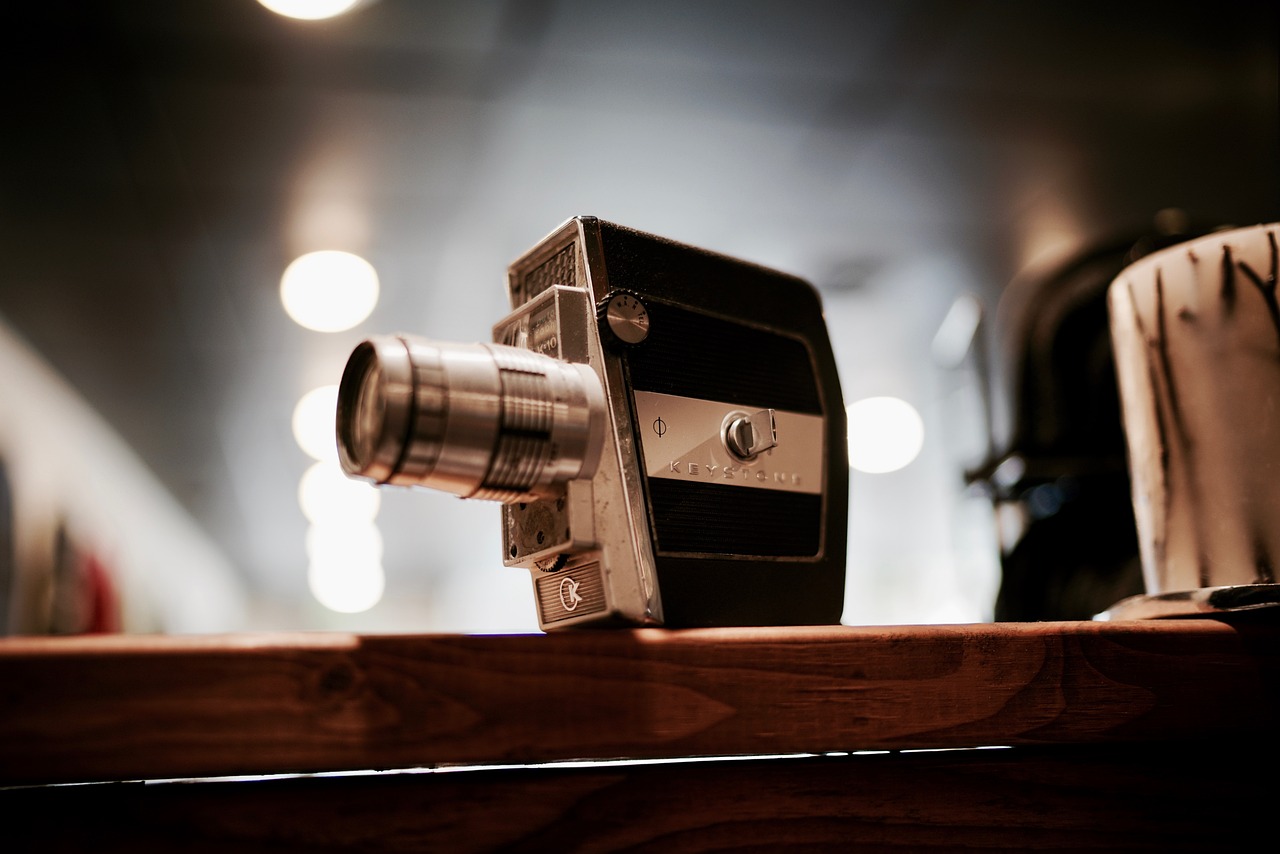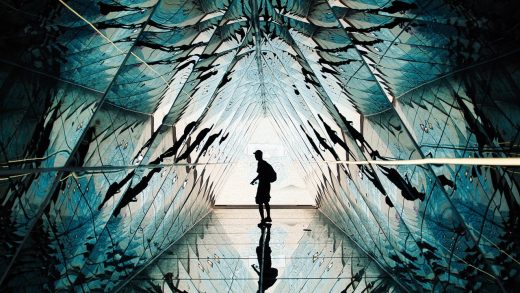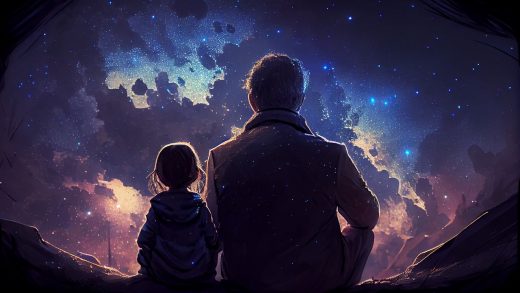The film industry is undergoing a revolution like never before, thanks to the rise of artificial intelligence. From the inception of a script to the final cut of a film, AI is reshaping every aspect of cinema. Imagine a world where machines not only assist in creating stories but also help in crafting the very fabric of our cinematic experiences. This transformation is not just about technology; it’s about redefining how we connect with narratives and characters on screen.
As we delve deeper into this fascinating topic, it becomes clear that AI’s influence on cinema is profound. It is enhancing creativity by providing writers with innovative tools that can generate plot ideas and character arcs. With AI’s ability to analyse vast amounts of data, filmmakers can now tap into audience preferences, ensuring that the stories told resonate with viewers on a personal level. This level of engagement is unprecedented, making the viewing experience more immersive and tailored than ever before.
Moreover, the integration of AI in visual effects has led to a new era of realism in films. Gone are the days when CGI looked artificial; today, AI algorithms can create breathtaking visuals that captivate audiences. This not only streamlines production processes but also allows for a more efficient use of resources, ultimately resulting in better-quality films.
However, as we embrace these advancements, we must also consider the ethical implications of AI in filmmaking. Questions surrounding creativity, authorship, and potential biases in content creation are critical to address. As we look to the future, the intersection of AI and cinema promises to unveil exciting possibilities that could further transform the industry landscape.
In conclusion, the evolution of cinema through AI is an exhilarating journey. It invites us to rethink storytelling, audience engagement, and the very essence of creativity in film. As we continue to explore these changes, one thing is certain: the future of cinema is not just about technology; it’s about a deeper connection to the stories we love.
| AI Impact on Cinema | Areas of Influence |
|---|---|
| Scriptwriting | Generating ideas, character development, dialogue |
| Visual Effects | Enhancing realism, improving efficiency |
| Audience Engagement | Personalised content, data-driven insights |
| Box Office Predictions | Predictive analytics for success forecasting |
| Ethics | Concerns about creativity and bias |
For further reading on the impact of AI in the film industry, check out this article.
The Role of AI in Scriptwriting
AI is revolutionising the scriptwriting landscape, breathing new life into the creative process. Imagine a world where writers collaborate with intelligent algorithms that can generate plot ideas, develop characters, and even craft dialogue. This isn’t just a futuristic fantasy; it’s happening right now! Tools powered by AI are assisting writers in ways that were once unimaginable, allowing for a more dynamic and efficient writing process.
One of the most significant contributions of AI in scriptwriting is its ability to analyse vast amounts of data from existing films. By examining successful scripts, AI can identify patterns and suggest elements that resonate with audiences. For instance, it can pinpoint the key themes that captivate viewers or the archetypal characters that drive engagement. This data-driven approach not only enhances creativity but also ensures that the stories being told are more aligned with audience preferences.
However, there are concerns regarding the implications of AI on creativity. Some argue that relying too heavily on AI could stifle originality, leading to a homogenisation of storytelling. But, when used as a collaborative tool, AI can actually inspire writers to push their boundaries. It’s akin to having a brainstorming partner that never runs out of ideas!
To illustrate the impact of AI in scriptwriting, consider the following table:
| AI Tool | Function | Impact on Scriptwriting |
|---|---|---|
| ScriptAI | Generates plot outlines | Speeds up the brainstorming process |
| CharacterGen | Develops character backstories | Enhances character depth and relatability |
| DialogueBot | Creates realistic dialogue | Improves dialogue authenticity |
In conclusion, while AI is reshaping the scriptwriting process, it is essential to strike a balance between technology and human creativity. Writers should embrace these tools as a means to enhance their craft rather than replace it. For more insights on the intersection of AI and creativity, check out this article.

AI-Driven Visual Effects
This article explores how artificial intelligence is reshaping the film industry, from scriptwriting to visual effects, and examines its impact on storytelling and audience engagement.
The integration of artificial intelligence in visual effects is nothing short of a cinematic revolution. Imagine a world where the boundaries of reality are stretched, where the impossible becomes possible, and where filmmakers can create stunning visuals with unprecedented ease. AI technologies are not just tools; they are transforming how films are conceptualised and produced. For instance, AI algorithms can analyse vast amounts of data to generate realistic animations, making it easier for filmmakers to bring their wildest dreams to life.
One of the most exciting advancements is the use of AI in CGI (Computer-Generated Imagery). Traditionally, creating intricate visual effects required extensive manpower and time. Now, with AI, the process is streamlined. AI can assist in:
- Enhancing realism: By simulating natural phenomena like water, fire, and weather patterns, AI helps create immersive environments.
- Speeding up production: With AI tools, the rendering process is significantly faster, allowing for more time to focus on creative aspects.
- Cost efficiency: Reducing the need for large teams and extensive resources can lead to substantial savings for studios.
Moreover, AI can predict how audiences will react to certain visual styles, enabling filmmakers to tailor their approach accordingly. According to a recent study, films that utilised AI-driven visual effects saw a 20% increase in audience engagement compared to those that did not.
As we look to the future, the potential for AI in visual effects is boundless. We may soon witness a time when a single artist, armed with advanced AI tools, can create entire worlds, rendering traditional methods obsolete. The question is, will this shift enhance creativity or dilute the artistry of film? Only time will tell.
For more insights into the impact of AI on visual effects, check out this article.
Audience Analysis and Personalisation
In today’s rapidly evolving film landscape, audience analysis and personalisation have emerged as pivotal elements that shape the way films are created and marketed. With the advent of advanced AI technologies, filmmakers can now delve deep into audience preferences, enabling a tailored viewing experience that resonates with diverse demographics. Imagine walking into a cinema where every film has been subtly adjusted to suit your tastes—sounds enticing, right?
AI tools analyse vast amounts of data, ranging from social media interactions to streaming habits, to uncover patterns in viewer behaviour. This data-driven approach allows studios to craft narratives that not only captivate but also engage audiences on a personal level. For instance, by examining trends in genre popularity or character archetypes, filmmakers can predict what elements will resonate most with their target audience.
Moreover, personalisation extends beyond just the films themselves. It encompasses marketing strategies that are tailored to specific audience segments. By leveraging insights gained from AI, studios can optimise their promotional efforts, ensuring that trailers and advertisements reach the right people at the right time. This creates a more engaging experience, as viewers are more likely to connect with content that speaks directly to their interests.
However, while the benefits of audience analysis are clear, there are ethical considerations that must be addressed. The reliance on data can sometimes lead to a homogenisation of content, where unique voices are overshadowed by what is statistically proven to succeed. This raises questions about the balance between catering to audience preferences and fostering true creativity in storytelling.
As we look to the future, the integration of AI in audience analysis and personalisation will undoubtedly reshape the cinematic experience. Filmmakers must navigate this new terrain thoughtfully, ensuring that technology enhances rather than diminishes the artistry of film.
| Benefits of Audience Analysis | Challenges |
|---|---|
| Enhanced Engagement | Over-reliance on Data |
| Tailored Marketing Strategies | Potential Loss of Creativity |
| Improved Box Office Performance | Ethical Concerns |
For further insights, you can explore more about AI in the entertainment industry.

Predictive Analytics in Box Office Success
Predictive analytics is rapidly becoming a game-changer in the film industry, especially when it comes to understanding and forecasting box office performance. By leveraging vast amounts of data, studios can make informed decisions that significantly impact their financial success. Imagine being able to predict a film’s success before it even hits the theatres—sounds like something out of a sci-fi movie, right?
Using advanced algorithms and machine learning, filmmakers can analyse various factors such as genre trends, audience demographics, and even social media buzz. This data-driven approach enables studios to tailor their marketing strategies effectively. For instance, a film targeted at younger audiences might focus on social media campaigns, while a drama might benefit from traditional advertising methods. The table below illustrates some key factors that predictive analytics considers:
| Factor | Description |
|---|---|
| Genre Trends | Analysis of which genres are currently popular among audiences. |
| Audience Demographics | Understanding the age, gender, and preferences of potential viewers. |
| Social Media Sentiment | Monitoring online conversations and sentiments related to the film. |
Moreover, predictive analytics can help studios estimate potential earnings and guide their investment decisions. By assessing data models, they can determine which films are likely to be box office hits and allocate resources accordingly. This not only maximises profits but also reduces the risk of financial losses. However, it’s essential to remember that while data can inform decisions, it should not replace the creativity and artistry that make cinema truly special.
As we look to the future, the integration of predictive analytics in box office success will likely continue to evolve. It’s an exciting time for filmmakers and audiences alike, as we witness the fusion of technology and storytelling. For more insights on this topic, you can visit Forbes.
The Future of AI and Cinema
This article explores how artificial intelligence is reshaping the film industry, from scriptwriting to visual effects, and examines its impact on storytelling and audience engagement.
AI is revolutionising scriptwriting by generating plot ideas, character development, and dialogue. This section delves into how AI tools assist writers and the implications for creativity in storytelling.
The integration of AI in visual effects is transforming how films are made. This part discusses the advancements in CGI and how AI enhances realism and efficiency in production.
AI technologies are enabling filmmakers to analyse audience preferences and tailor content accordingly. This section examines how data-driven insights are shaping the viewing experience and marketing strategies.
Predictive analytics powered by AI is becoming crucial for studios to forecast box office performance. This segment highlights how data models assess potential success and guide investment decisions.
The future of AI in cinema is not just a fleeting trend; it holds exciting possibilities that could redefine the film landscape. Imagine a world where AI collaborates with directors to craft narratives that resonate deeply with audiences. As we look ahead, we can anticipate innovations such as:
- Enhanced Storytelling: AI will likely take on a more prominent role in developing complex narratives and character arcs, making stories more engaging.
- Interactive Films: With AI, we could see the rise of films that adapt in real-time to audience reactions, creating a personalised viewing experience.
- Virtual Reality Integration: The combination of AI and VR technologies could lead to immersive cinematic experiences that transport viewers into the heart of the story.
Moreover, the collaboration between AI and human creativity will be crucial. While AI can generate ideas and streamline production, the human touch will remain essential for emotional depth and authenticity. As filmmakers embrace AI, they will need to balance technological advancements with the artistry that defines cinema.
In summary, the future of AI in the film industry is bright, with the potential to enhance storytelling, personalise experiences, and create innovative formats. However, as we embrace these advancements, it’s vital to consider the ethical implications and ensure that creativity remains at the forefront of this evolution.

Ethical Considerations of AI in Film
This article explores how artificial intelligence is reshaping the film industry, from scriptwriting to visual effects, and examines its impact on storytelling and audience engagement.
AI is revolutionising scriptwriting by generating plot ideas, character development, and dialogue. This section delves into how AI tools assist writers and the implications for creativity in storytelling.
The integration of AI in visual effects is transforming how films are made. This part discusses the advancements in CGI and how AI enhances realism and efficiency in production.
AI technologies are enabling filmmakers to analyse audience preferences and tailor content accordingly. This section examines how data-driven insights are shaping the viewing experience and marketing strategies.
Predictive analytics powered by AI is becoming crucial for studios to forecast box office performance. This segment highlights how data models assess potential success and guide investment decisions.
Looking ahead, the future of AI in cinema holds exciting possibilities. This section speculates on upcoming trends and innovations that could further transform the industry landscape.
As AI becomes more prevalent in filmmaking, ethical considerations are increasingly coming to the forefront. The integration of AI raises vital questions about creativity, authorship, and the potential for bias in the content created. For instance, when AI generates a script, who is the true author? Is it the programmer, the algorithm, or the original creator who provided the input? This ambiguity can lead to disputes over intellectual property rights.
Moreover, the use of AI in film production can unintentionally reinforce existing biases. If an AI system is trained on historical data that reflects societal prejudices, it may perpetuate these biases in new content. As such, filmmakers must remain vigilant about the data sets they use and the potential consequences of their AI tools.
To illustrate these points, consider the following ethical dilemmas:
- Authorship Rights: Who owns the rights to an AI-generated script?
- Bias in Content: How can filmmakers ensure that AI does not perpetuate stereotypes?
- Job Displacement: Will AI replace human jobs in the creative industry?
As we navigate this brave new world, it is essential for industry stakeholders to establish guidelines that ensure the responsible use of AI in filmmaking. This includes fostering a collaborative environment where human creativity and AI technology can coexist harmoniously.
In conclusion, while AI presents remarkable opportunities for innovation in cinema, it also poses significant ethical challenges that must be addressed. The future of filmmaking will depend on our ability to balance technological advancement with moral responsibility. For more information on the ethical implications of AI, you can visit Ethics.org.au.
Frequently Asked Questions
- How is AI changing scriptwriting in the film industry?
AI is revolutionising scriptwriting by providing writers with innovative plot ideas, character development suggestions, and even dialogue generation. This technology acts like a brainstorming partner, helping to spark creativity and streamline the writing process.
- What impact does AI have on visual effects?
AI enhances visual effects by making CGI more realistic and efficient. It automates complex tasks, allowing filmmakers to focus on the creative aspects, resulting in stunning visuals that captivate audiences.
- Can AI improve audience engagement?
Absolutely! AI analyses audience preferences and behaviours, allowing filmmakers to tailor content that resonates with viewers. This data-driven approach helps create a more personalised viewing experience.
- How does predictive analytics influence box office success?
Predictive analytics uses AI to forecast box office performance by analysing various data points. Studios can assess potential success, guiding their investment decisions and marketing strategies effectively.
- What are the future trends of AI in cinema?
The future of AI in cinema looks promising, with ongoing innovations expected to further transform storytelling, production processes, and audience interactions. We could see even more immersive experiences thanks to AI advancements!
- What ethical concerns arise with AI in filmmaking?
As AI becomes more integrated into filmmaking, ethical issues such as creativity, authorship, and potential bias in content creation emerge. It’s crucial to consider these implications as the industry evolves.


